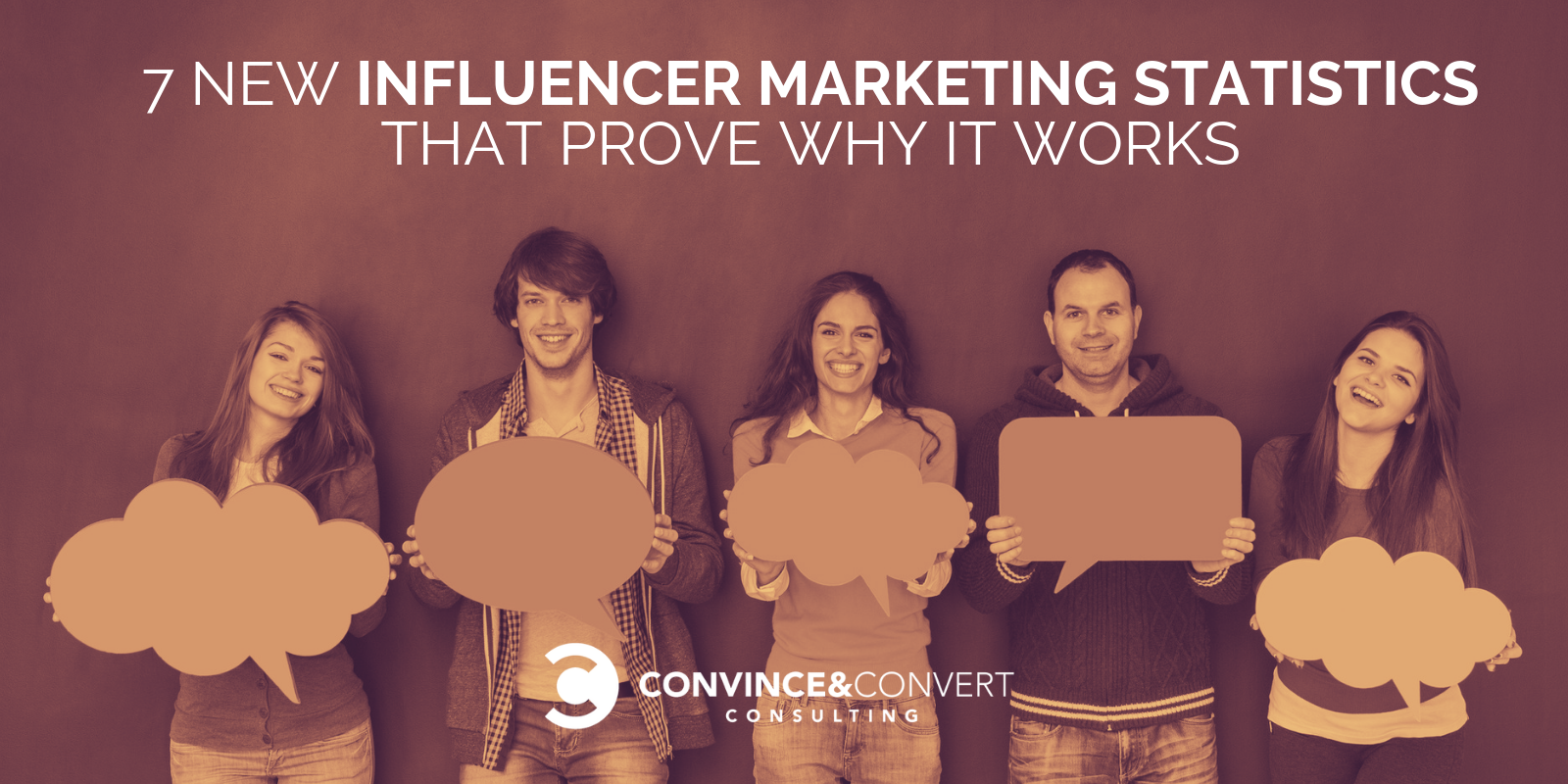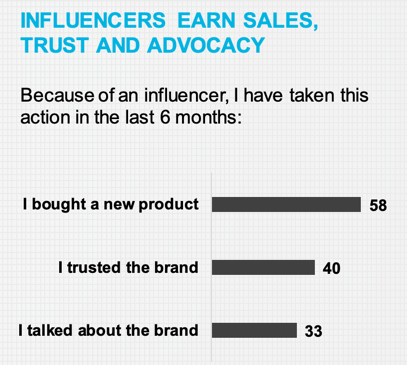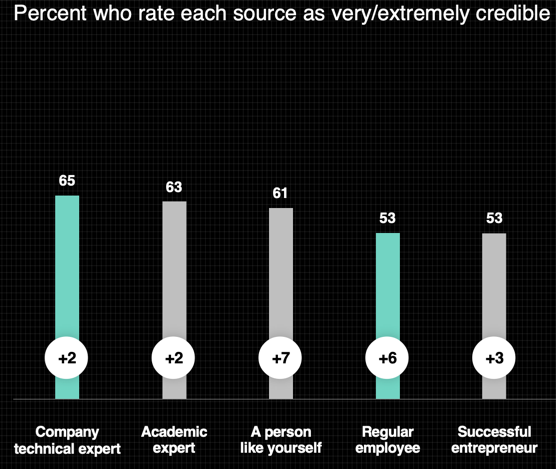
As the Google Trends data below demonstrates, interest in “influencer marketing” is sharply on the rise in the past years. Marketers, faced with massive competition for attention and the end of the “free lunch” once provided by no-cost social media reach, now seek to utilize influencers to spread the word without breaking the bank.
It’s entirely possible that you’ve engaged in influencer marketing yourself. We work on a lot of influencer marketing programs for clients here at Convince & Convert (mostly on the B2B side), and while these initiatives can be effective, it’s not a magic beans situation. Influencer marketing success requires time, money, effort, and a group of influencers that actually cares about whatever it is that you do.
But regardless of the outcomes on a program-by-program basis, there’s no question that influencer marketing can be a sound strategy, and it’s here to stay. I think most marketers believe that to be true intuitively, but new research from Edelman shows WHY influencer marketing is the manifestation of larger trends about trust and authority.
For nearly two decades, the global PR powerhouse Edelman has published an annual Trust Barometer that gathers data about in who, what, and where consumers place their trust. For the first time, the 2019 edition also included a supplemental report that contained some fascinating influencer marketing statistics.
[contextly_main_module]
I encourage you to download and read the entire Trust Barometer and “In Brands We Trust” adjunct, but for your reference I have summarized the key influencer marketing statistics here.
About The Influencer Marketing Statistics in this Research
The Trust Barometer is a comprehensive survey. More than 33,000 people participated, in 27 countries around the world. For more on the methodology, visit the Trust Barometer microsite.
1. We Trust People Like Us More Than Just About Anyone
One of the most interesting elements of this annual research is that Edelman asks participants to rate who they find to be credible, or very credible. In the past year, respondents’ trust in “a person like me” increased by 7 percent, larger than any other category. In fact, 61% of people now find information from “a person like me” to be credible or very credible.
This finding underscores the power of “regular” influencers, often now known as “micro influencers” or “nano influencers” as opposed to celebrities and other well-known persons.
2. Influencer Relatability Is More Important Than Popularity
This is a fascinating finding that also demonstrates the viability of “real people” as influencers. In this research, Edelman asked participants why they followed and trusted influencers, and the relatability of the influencer was nearly twice as important as the influencer’s popularity.
What this means is that when consumers can see a bit of themselves and their circumstances in an influencer, she is far more likely to follow and trust that influencer.
3. Trust In Category Experts Is Massive
Even more so than the trust we have in “people like me” is the trust we have in highly educated experts. The only two groups of people we trust more than people like ourselves are company technical experts, and academic experts.
This influencer marketing statistic showcase the ability of key employees to serve as trusted advocated on behalf of the brand, and underscores the potential for professors et al to serve as influencers as well.
4. Trust In Brands Is Not Universal
While consumers’ trust in business edged up slightly in the last year, only 34% of global citizens (37% in the USA) trust most of the brands they buy or use.
Why does influencer marketing work? First, because influencers can “introduce” (often digitally) brand messages to a new audience in a cost-effective way. And second, because consumers fundamentally trust people more than they trust companies. That trust breeds authority, which can produce behavior changes that meet company objectives.
5. 74% of Consumers Are Dodging Brand Messages
One of most interesting influencer marketing findings in this year’s report is a study of how often consumers are proactively ignoring, deleting, or end-running traditional brand messaging. The answer: a LOT.
In fact, 74% of consumers use one or more advertising avoidance tactics, with nearly HALF using ad blocking technology on their computer.
Consumers use one or more advertising avoidance tactics, with nearly HALF using ad blocking technology on their computer. Click To Tweet
Of course, influencer marketing – in its current guise – is mostly immune to this type of avoidance behavior, another reason for its present popularity.
6. 63% Trust Influencer Messages More Than Brand Messages
This one statistic essentially summarizes the business case for influencer marketing. Nearly two out of every three consumers say that they trust influencer messages about a brand more than a company’s advertising about their own brand. This is rooted in distrust in “advertising” as a communications modality, but the truth is that we trust people more than we trust businesses.
Nearly 2 out of every 3 consumers say that they trust influencer messages about a brand more than a company’s advertising about their own brand Click To Tweet
7. Influencer Marketing Drives Real Revenue
 It’s not just about likes, comments, and clicks. In this study, 58 percent of participants said they have actually purchased a product because of an influencer recommendation, in just the past six months.
It’s not just about likes, comments, and clicks. In this study, 58 percent of participants said they have actually purchased a product because of an influencer recommendation, in just the past six months.
It’s interesting to note that influencers are more likely to drive purchases than build trust in brands, per the data below.
Those are my 7 most interesting influencer marketing statistics from the Edelman Trust Barometer. Do take the time to download the entire report for yourself. It’s full of additional insights.
